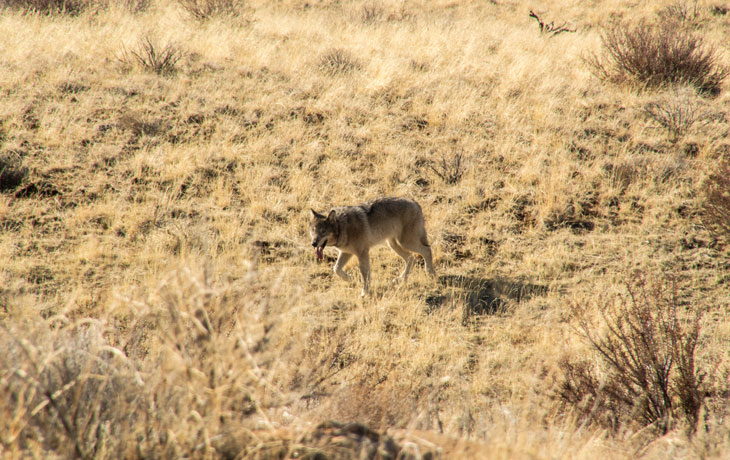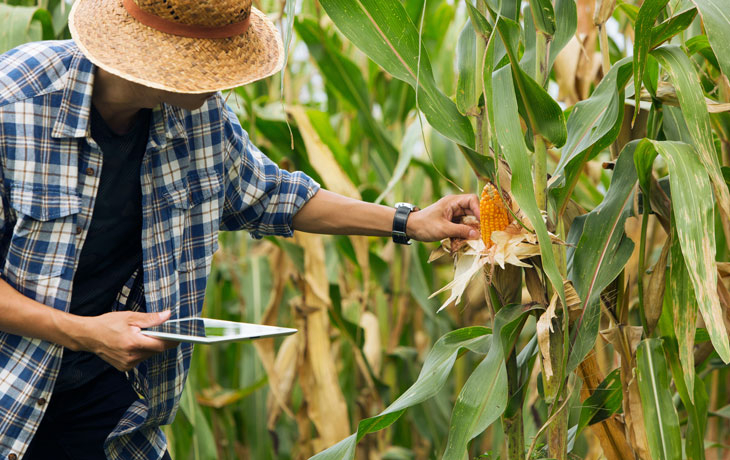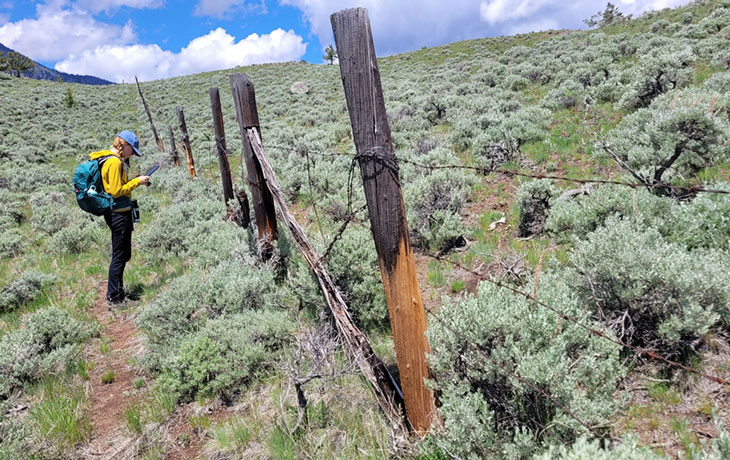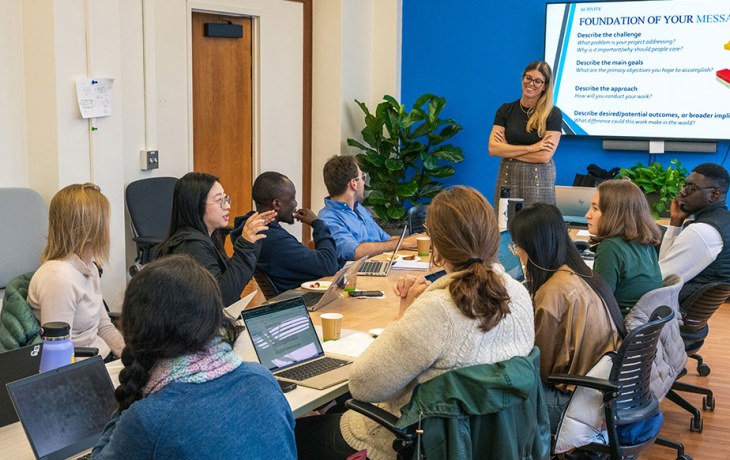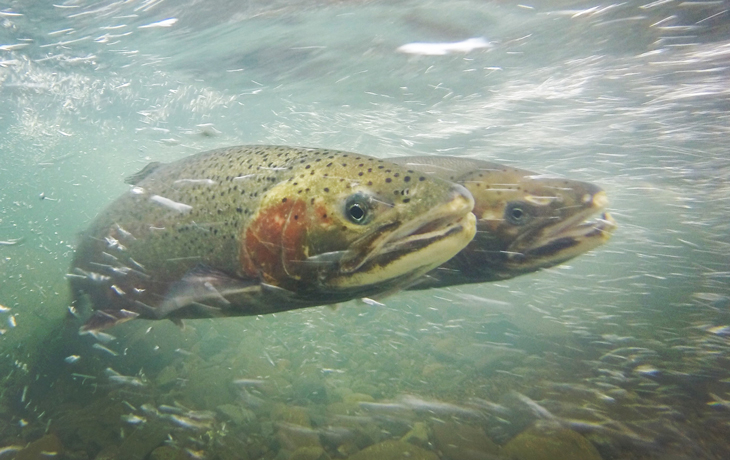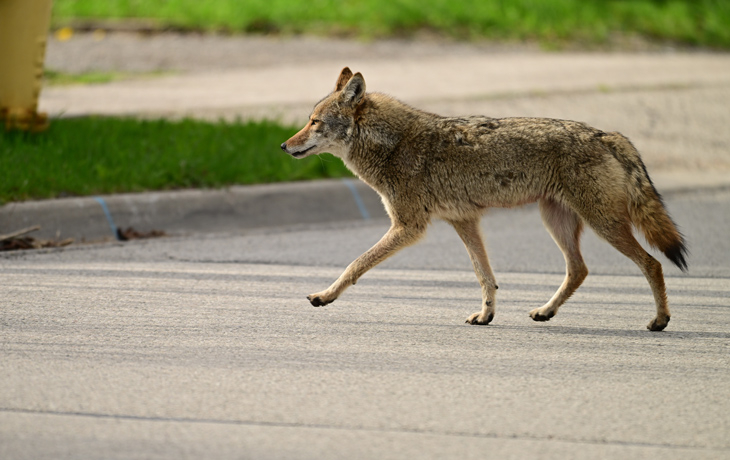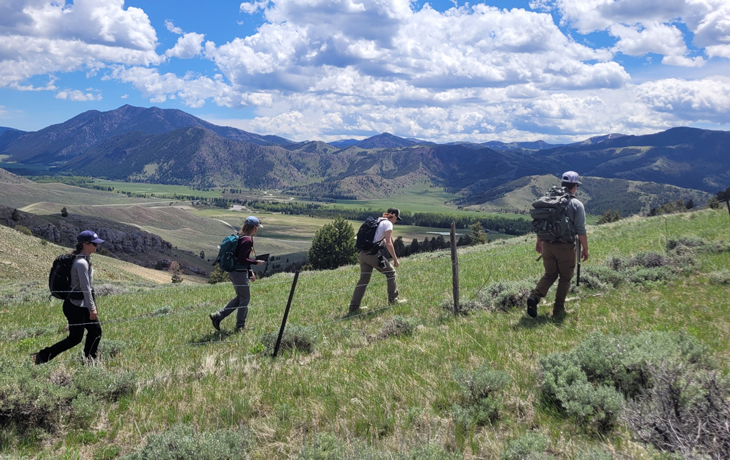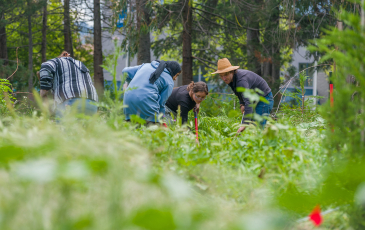Efforts by College Relations staff to update the communications preferences for the College’s constituents were given an honorable mention in the Best in Annual Giving Awards.
What we really need in the fight against extinction
ESPM faculty members Justin Brashares and Douglas McCauley write in TIME about how “de-extinction efforts” distract from the accelerating decline and extinction of nature.
Study finds opportunities to increase financial security for farmers and insurance companies
Professor Timothy Bowles and collaborators including researchers at the UC Berkeley Schmidt Center for Data Science and the Environment have released a paper and an open source tool that models the likely future of the US corn industry, in which growers and insurance companies face increasing economic uncertainty.
Three Rausser College students awarded NSF fellowships
The prestigious research fellowship provides financial support and professional development opportunities to awardees.
Youjin Chung honored with AAG book award
The ESPM and ERG assistant professor’s latest book, Sweet Deal, Bitter Landscape, was honored by the American Association for Geographers.
Electric trains are quieter, more reliable—and healthier—than diesel
A study co-authored by UC Berkeley professors Allen Goldstein and Joshua Apte, PhD '13 Energy and Resources, found that electrifying the Caltrain commuter line reduced riders’ exposure to carcinogenic black carbon by an average of 89%.
Applications cycle open for new National Geographic Society Initiative on American Keystones
Researchers, conservation practitioners, Tribal leaders, and others leading conservation efforts focused on keystone species in the United States and territories are encouraged to apply by May 23rd.
Understanding gaps in electricity access across Kampala
A new study led by Energy and Resources Group researchers reveals the challenges of energy access in Uganda, as grid connections still leave many residents vulnerable to energy poverty.
Focus on: PhD candidate Marco Dueñas
QB3 recently interviewed Marco Dueñas, a plant biology PhD candidate in Sabeeha Merchant's lab.
Schmidt Sciences brings hands-on communications training to UC Berkeley scientists
Over 35 graduate students from departments across campus participated in the workshop, which was hosted by the Eric and Wendy Schmidt Center for Data Science & Environment.
Alicia Henson recognized for graduate mentorship, professional leadership
Henson, a program coordinator and education specialist, was recognized by the Graduate Assembly for her mentorship and the California Academy of Nutrition and Dietetics for her leadership in the field.
A single dry winter decimated CA's salmon and trout populations
A new study led by Professor Stephanie Carlson found that severely dry conditions during the winter of 2013-2014 helped wipe out the salmonid populations of individual tributaries and even entire watersheds.
Understanding the coyote next door
Research by ESPM professor Christopher Schell and postdoctoral scholar Lauren Stanton could help improve human-wildlife interactions and inform new ways of thinking about urban environments.
Tom Steyer to deliver Albright Lecture
The College will host climate advocate and investor Tom Steyer for the Albright Lecture in Conservation on Wednesday, April 2. His talk is entitled “Climate Capitalism: A Way Forward in 2025.”
Stone Center Annual Report 2024-25
During its second year, the Stone Center for Environmental Stewardship has advanced cutting-edge research on barriers to wildlife migration around Yellowstone National Park and launched new partnerships.
Assessing climate policies of central banks
A new Nature Energy study led by Rausser College researchers reveals how central banks in 47 countries differ in their response to climate risks.
Gill Tract emerges as bright spot for Monarch Butterflies
The Albany property hosted one of the largest populations of overwintering monarch butterflies as numbers across California dropped to a near-record low.
Faculty focus: Andreas Stahl
The Department of Nutritional Science and Toxicology professor spoke to the California Institute for Quantitative Biosciences about his lab's research.
Mapping the return of Indigenous lands using data science
ESPM PhD candidate McKalee Steen became the first graduate student researcher at the Schmidt Center this January, contributing to their research on Indigenous data sovereignty.
Can “sustaining innovation” deliver sustainability?
Professor Dara O’Rourke explores Amazon’s decarbonization efforts in a new case study published in the California Management Review.



